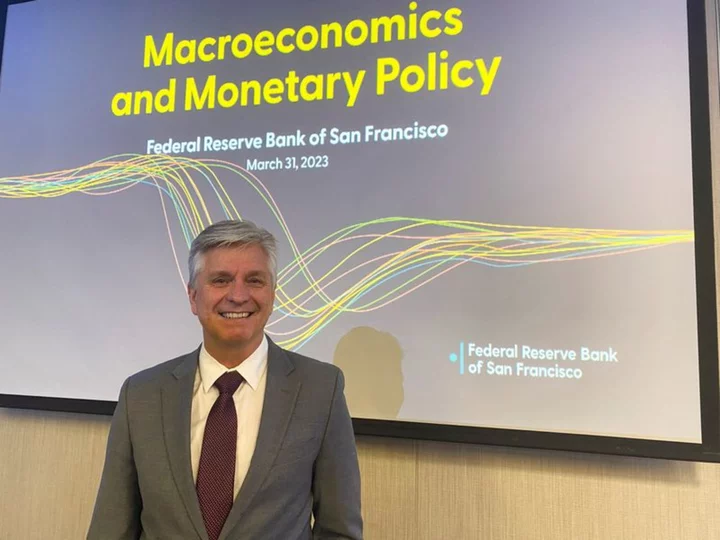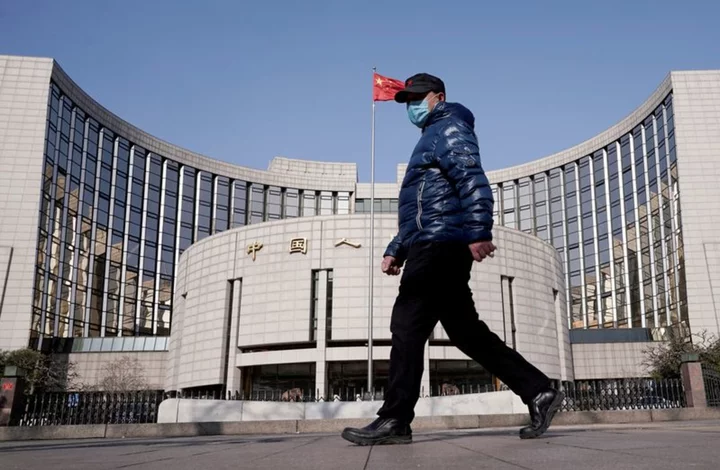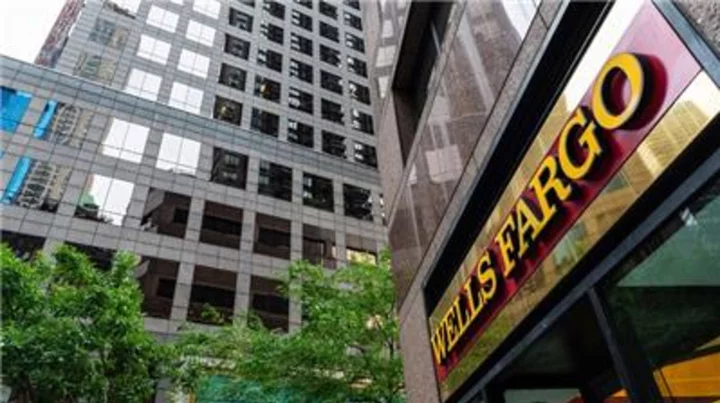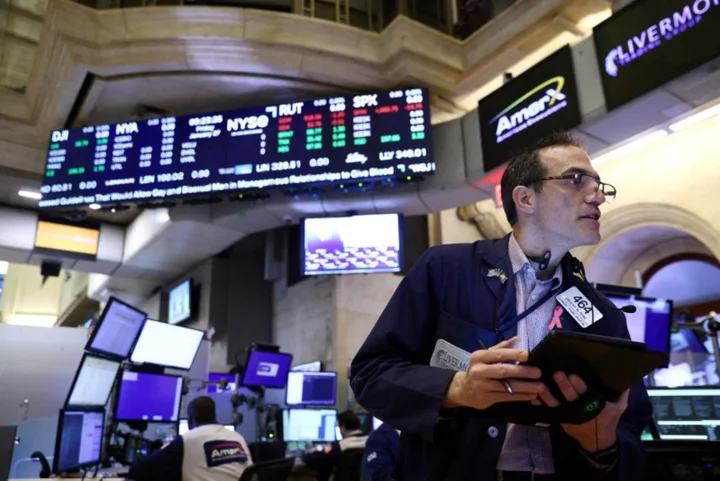By Howard Schneider and Lindsay Dunsmuir
WASHINGTON Third-quarter U.S. economic growth, at an annualized 4.9% rate, was a "blowout" performance that warrants watching as the Federal Reserve considers its next policy moves, Fed Governor Christopher Waller said on Tuesday.
"This was an outstanding quarter ... this big blowout number," Waller told an economic data seminar at the St. Louis Fed. In looking at the components of U.S. output, "everything was booming. So this is something we are keeping a very close eye on when we think about policy going forward."
Waller spoke as more recent data suggested the July-September period may prove an outlier for the year, with manufacturing and job growth both cooling in October, a bank loan officers survey showing continued credit tightening and a drop in loan demand in recent months, and a New York Fed report on Tuesday noting a rise in consumer loan delinquencies.
That combination of data points to the sort of economic slowing that Fed officials have expected as the "lagged" impact of central bank interest rate hikes takes hold more forcefully.
Based on incoming economic data, the Atlanta Fed's GDPNow model suggests fourth-quarter gross domestic product will grow at an annualized rate of 2.1%, a sharp drop from the third-quarter reading and edging towards a pace Fed officials might view as allowing inflation to slow from the current 3.4%, as measured by the personal consumption expenditures price index, to their 2% target.
Many economists expect the Fed to hold interest rates steady at its Dec. 12-13 policy meeting, in part due to that anticipated slowdown and the ongoing tightening of borrowing and credit conditions.
In comments on Monday, Fed Governor Lisa Cook took particular note of rising debt stress. While it was not broadly apparent among "resilient" U.S. households, she said, "we are seeing emerging signs of stress for households with lower credit scores, and individual borrowers may struggle with debt burdens in the face of economic hardships," a dynamic that at the margin will begin to trim consumer spending and, in the extreme, could make banks even more reluctant to lend.
'CLEARLY CALMING DOWN'
Waller, who has been among the most ardent advocates of aggressive Fed rate hikes to battle high inflation, did not include a policy recommendation in his remarks.
But he also noted signs that the economy may be making a further turn away from the excesses that defined the pandemic years.
After a run of "amazing" job growth, Waller said, "the labor market is cooling a bit ... It's clearly calming down," with recent employment gains more in line with the levels seen before the coronavirus pandemic, a development Fed policymakers also feel is necessary for inflation to return to the 2% target.
The Fed is in the process of weighing that and other data to determine whether to raise the benchmark overnight interest rate beyond the current 5.25%-5.50% range that was set in July.
Against the economic growth seen in recent months, a rise in long-term bond yields has led some Fed officials to feel that credit conditions may now be tight enough that the central bank will not need to raise its own short-term policy rate again in this tightening cycle.
In comments to CNBC on Tuesday, Chicago Fed President Austan Goolsbee noted that inflation has been slowing, and that the rise in market-based interest rates, "if ... sustained at high levels" most likely represents a tightening of credit conditions.
"Then we have got to take that into account ... We should expect to see that with a lag working its way through the economy. So we're all paying attention and trying to figure out what the driver is," Goolsbee said.
The Fed's current cautious approach to any further rate increases has been bolstered by the rise in bond yields and higher market interest rates.
But neither Goolsbee nor Minneapolis Fed President Neel Kashkari, who spoke to Bloomberg Television on Tuesday, ruled out further Fed rate increases.
Noting, as Waller did, the recent "hot" readings on economic activity, Kashkari said "that makes me question if policy is as tight as we assume it currently is."
"If you saw inflation tick back up and you saw continued very strong economic activity in the real side of the economy, that would tell me we might need to do more," Kashkari added.
(Reporting by Howard Schneider and Lindsay Dunsmuir; Additional reporting by Michael Derby Editing by Paul Simao)









